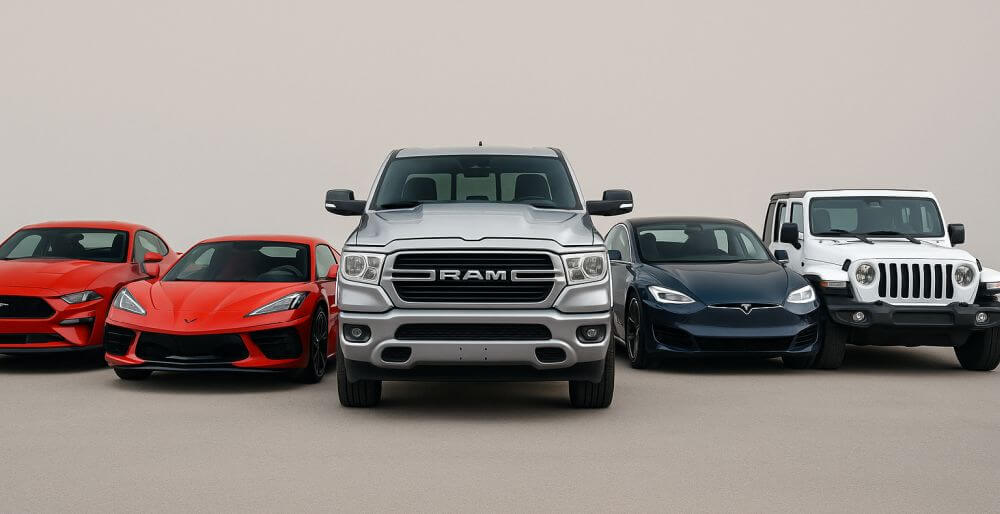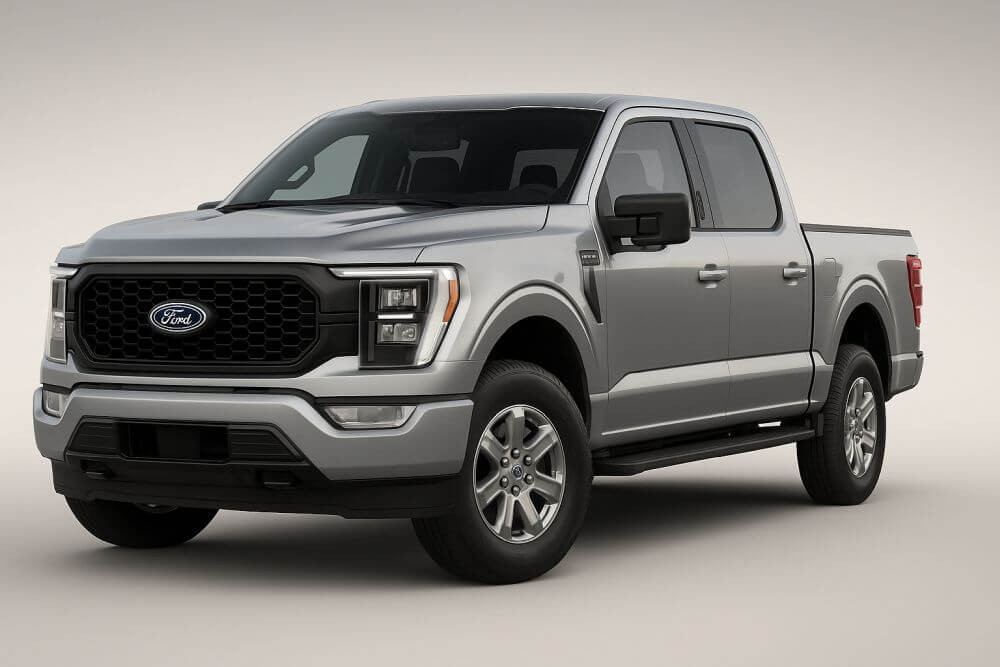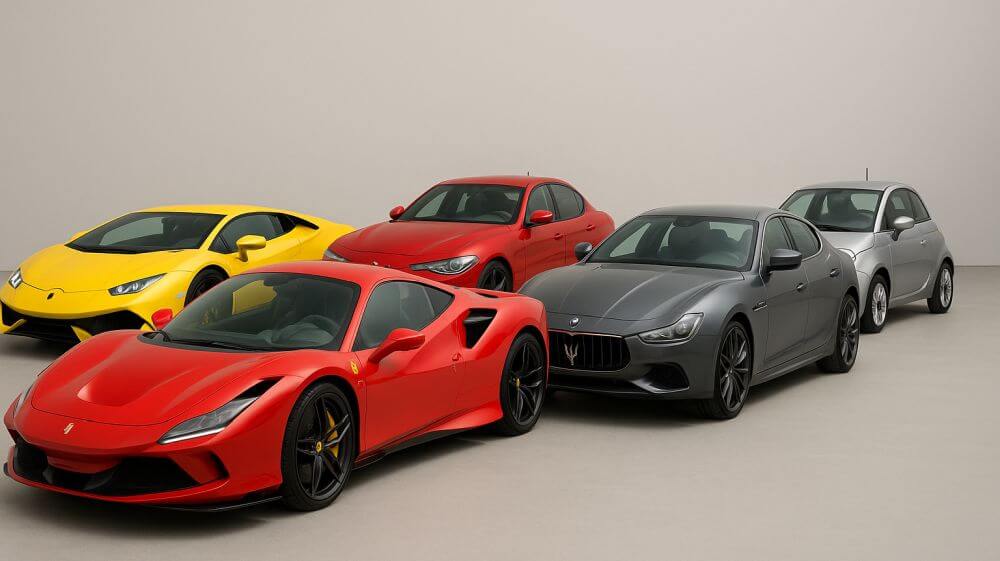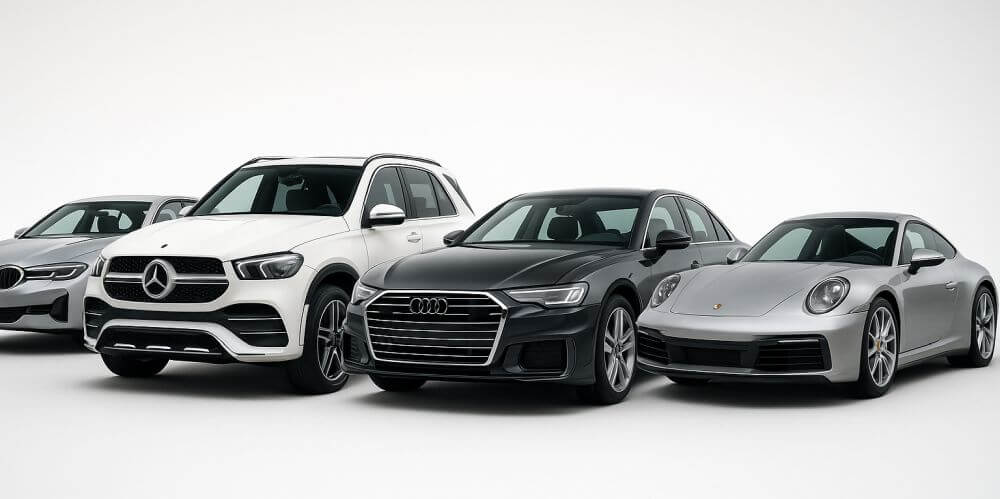American cars have a legacy that’s as vast and diverse as the nation itself. From muscle car legends roaring down drag strips to versatile pickup trucks dominating job sites, U.S. automakers have shaped global automotive culture for over a century. Ford, Chevrolet, Dodge, Tesla, and other American brands are recognized worldwide for their distinctive styling, engineering innovations, and an emphasis on performance.

If you’re considering buying a pre-owned vehicle from any of these manufacturers, it’s crucial to research its background with a car history report to uncover accidents, title issues, and service records. Additionally, checking an MSRP Lookup by VIN can help you understand the original manufacturer’s suggested retail price and trim-level features, giving you a better picture of its value today.
Why American Cars Hold a Special Place in the Industry
American automakers helped define the modern automobile. From Henry Ford’s assembly line to the rise of electric vehicles, the U.S. has been a hub for innovation and mass production.
Key Strengths of American Cars
- Performance Heritage – Muscle cars like the Ford Mustang and Dodge Challenger have cult followings.
- Utility and Versatility – Pickup trucks, such as the Ford F-150 and Chevrolet Silverado, lead U.S. sales year after year.
- Innovation Leadership – Tesla is a leader in electric vehicle technology, while traditional brands continue to push hybrid and EV development.
- Cultural Impact – American cars have starred in countless movies, TV shows, and motorsport events, cementing their place in popular culture.
According to the U.S. Department of Transportation, American automakers collectively produce millions of vehicles annually, with a large percentage exported worldwide.
Iconic American Car Brands
Ford Motor Company
Founded in 1903, Ford revolutionized auto manufacturing with the moving assembly line. Today, it’s known for dependable trucks, SUVs, and performance models.
Popular Models:
- Ford F-150 – The best-selling vehicle in the U.S. for decades.
- Ford Mustang – The muscle car icon.
- Ford Bronco – Rugged SUV reborn for modern adventurers.
General Motors (Chevrolet, GMC, Cadillac, Buick)
General Motors operates multiple brands, each targeting different market segments.
Chevrolet: Known for cars like the Corvette and Silverado.
GMC: Premium trucks and SUVs like the Sierra and Yukon.
Cadillac: Luxury sedans and SUVs such as the Escalade.
Buick: Comfortable, upscale crossovers like the Enclave.
Stellantis (Dodge, Jeep, Chrysler, Ram)
While now part of a global conglomerate, these American-rooted brands maintain strong domestic presence.
Dodge: High-performance muscle cars like the Challenger and Charger.
Jeep: Off-road icons like the Wrangler and Grand Cherokee.
Ram: Powerful trucks with premium interiors.
Tesla
Founded in 2003, Tesla has become a leader in EV technology, known for cutting-edge software, rapid acceleration, and autonomous driving features.
Popular Models:
- Tesla Model 3 – Affordable EV sedan.
- Tesla Model S – Luxury electric performance sedan.
- Tesla Cybertruck – Futuristic electric pickup.
Distinguishing Features of American Cars
1. Powerful Engines
From V8 muscle cars to high-torque diesel trucks, American vehicles are known for raw power.
2. Spacious Interiors
Designed for comfort during long drives, with roomy cabins and cargo space.
3. Towing and Hauling Capabilities
Especially in pickups and SUVs, American brands lead in payload and towing ratings.
4. Customization Options
Many models offer a range of trims, special editions, and performance packages.
Buying a Used American Car: Steps to Get It Right
Purchasing a pre-owned American vehicle can be rewarding, but it requires careful research.
Step-by-Step Guide:
- Get a VIN Check – Start with a car history report to verify ownership, accident history, and title status.
- Check MSRP and Trim – Use an MSRP Lookup by VIN to identify the original price and features.
- Inspect Condition – Check for rust, frame damage, and signs of poor maintenance.
- Review Service Records – Well-maintained vehicles generally offer better long-term reliability.
- Test Drive – Evaluate ride comfort, acceleration, braking, and handling.
American Luxury vs. Performance Segments
U.S. automakers excel in both categories:
- Luxury Leaders – Cadillac Escalade, Lincoln Navigator.
- Performance Icons – Chevrolet Corvette, Dodge Viper, Ford Mustang Shelby GT500.
The Future of American Automakers
American brands are aggressively expanding into EVs and advanced driver-assistance technologies:
- Ford F-150 Lightning – All-electric version of the country’s best-selling truck.
- Chevrolet Silverado EV – Electric pickup with impressive range.
- Tesla Full Self-Driving (FSD) – Cutting-edge autonomous capabilities.
Conclusion
American cars symbolize freedom, power, and innovation. Whether you want a muscle car, a family SUV, or a cutting-edge electric vehicle, the U.S. automotive market has something for every lifestyle. When shopping—especially for a used model—equip yourself with a car history report and an MSRP Lookup by VIN to make an informed decision.
Frequently Asked Questions About American Cars
Which American car brand is the most reliable?
Ford and Chevrolet trucks have a long track record of reliability, while brands like Buick often perform well in dependability rankings.
Are American cars more fuel-efficient today?
Yes. Many modern models use turbocharged engines, hybrid systems, and lightweight materials to improve efficiency.
What’s the best American muscle car?
The Ford Mustang, Chevrolet Camaro, and Dodge Challenger remain top contenders, each with its own loyal fan base.
How can I find the original price of a used American car?
Use an MSRP Lookup by VIN to see the manufacturer’s suggested retail price and options.
Do American automakers make good electric vehicles?
Yes—Tesla leads the EV market, while Ford, Chevrolet, and Rivian are producing competitive electric trucks and SUVs.
Why do American pickups sell so well?
Their combination of capability, versatility, and comfort makes them appealing to both work and personal-use buyers.


